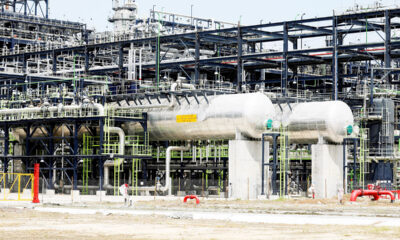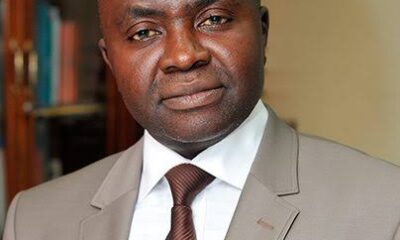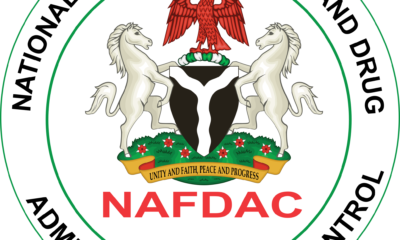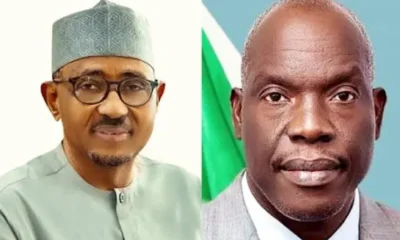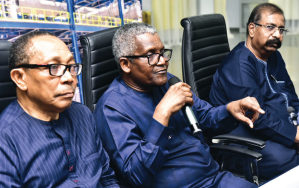News
Dangote/PENGASSAN face-off: Oil workers to begin strike Monday
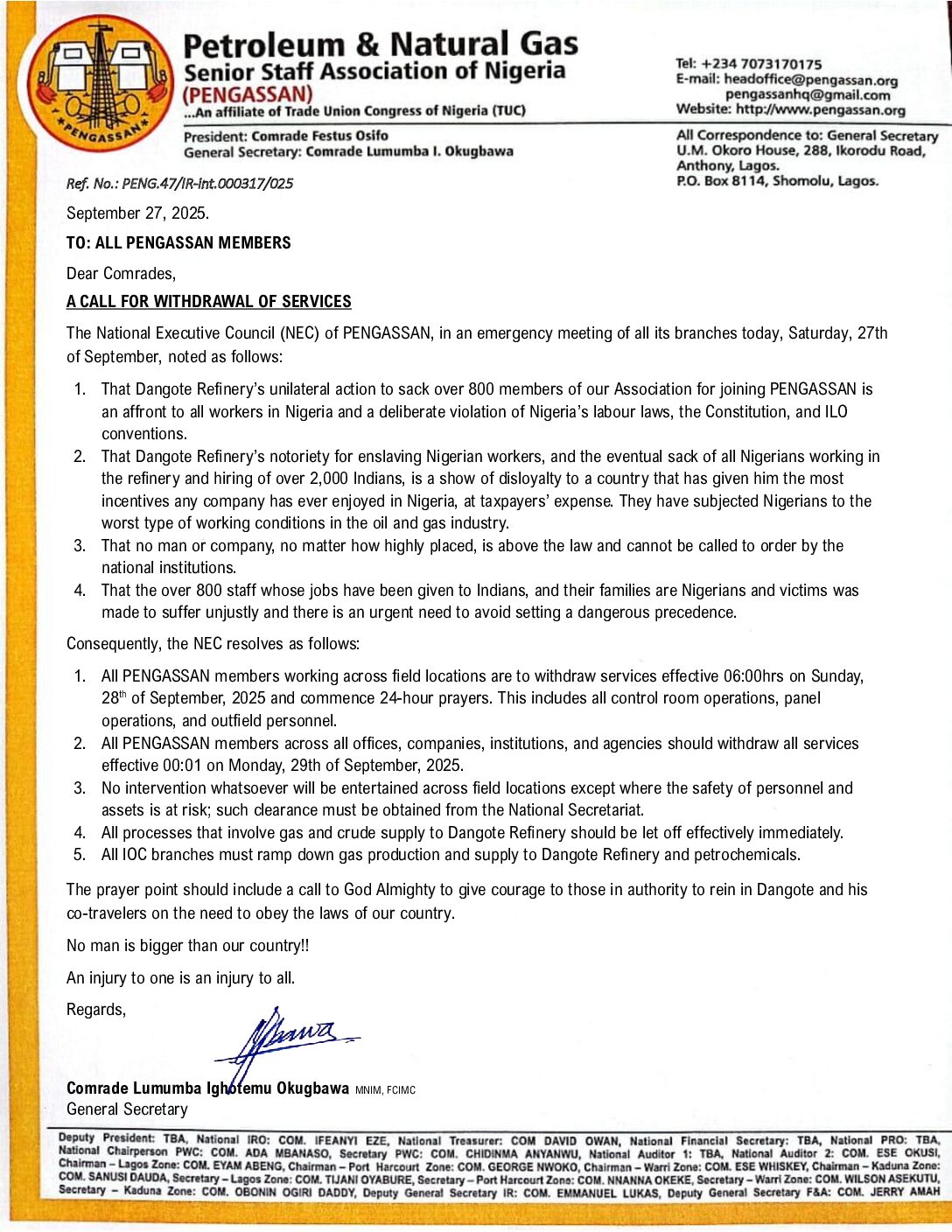
• Depots raise price to N980 from N880
Oil workers under the Petroleum and Natural Gas Senior Staff Association of Nigeria (PENGASSAN) has directed all its members in the country to withdraw their services within 24 hours. The decision was taken at an emergency meeting of all its branches which lasted late into the night on Saturday.
The strike order follows the recent sack of 800 workers by the Dangote Refinery and Petrochemicals.
As at yesterday, following the dispute and threats by oil workers, the Depot and Petroleum Products Marketers Association of Nigeria (DAPPMAN) increased their Premium Motor Spirit (PMS) petrol rate to N980 per litre from N880 per litre.
The action as also been deemed as an act of “economic sabotage” and threat to the country’s energy security by public sector analyst and economists
The labour directive was contained in a communique signed by PENGASSAN’s General Secretary, Comrade Lumumba Okugbawa. The union lamented that Dangote Refinery’s unilateral action to sack over 800 members of the Association for joining PENGASSAN was an insult to all workers in Nigeria and a deliberate violation of Nigeria’s labour laws, the Constitution, and International Labour Organisation (ILO) conventions.
The Union, in the communique, noted said: “Dangote Refinery’s notoriety for enslaving Nigerian workers and the eventual sack of all Nigerians working in the refinery and hiring of over 2,000 Indians, is a show of disloyalty to a country that has given him the most incentives any company has ever enjoyed in Nigeria, at taxpayers’ expense.”
The oil workers said the company has subjected Nigerians to the worst type of working conditions in the oil and gas industry.
The communique stated further: “That no man or company, no matter how highly placed, is above the law and cannot be called to order by the national institutions.
“That the over 800 staff whose jobs have been given to Indians and their families are Nigerians and victims was made to suffer unjustly and there is an urgent need to avoid setting a dangerous precedence.
“The National Executive Council (NEC) of PENGASSAN resolves that all its members working across field locations are to withdraw services effective 06:00hrs on Sunday, 28th of September, 2025 and commence 24-hour prayers. This includes all control room operations, panel operations, and outfield personnel.
It said: “All PENGASSAN members across all offices, companies, institutions, and agencies should withdraw all services effective 00:01 on Monday, 29th of September, 2025”.
The oil workers said no intervention whatsoever will be entertained across field locations except where the safety of personnel and assets is at risk.
“All processes that involve gas and crude supply to Dangote Refinery should be let off effectively immediately.
“All IOC branches must ramp down gas production and supply to Dangote Refinery and petrochemicals.
“The prayer point should include a call to God Almighty to give courage to those in authority to rein in Dangote and his co-travelers on the need to obey the laws of our country, “it added.Consequently, depot the Depot and Petroleum Products Marketers Association of Nigeria (DAPPMAN) increased their Premium Motor Spirit (PMS) petrol rate to N980 per litre from N880 per litre.
The Independent Petroleum Marketers Association of Nigeria (IPMAN) National President Alhaji Abubakar Maigandi, in a chat with The Nation, confirmed the increased depot price of the commodity.
“The depot owners have started jacking up their prices. I learnt that they are selling PMS N970 to N980 from N870 and N880. Formerly, it was N820 and N825, but now they are selling N870 to N880,” he said.
The IPMAN boss appealed to PENGASSAN to consider the negative impact their actions would cause the economy and rescind the decision to stop crude and gas supply to the refinery.
“We are appealing to PENGASSAN not to cut the supply of crude oil and gas to Dangote because it will affect the economy and also reconsider their strike declaration.
“We are appealing to them to look at another way of resolving their differences with Dangote management. This is because anything that will shortchange the economy is not good. The supply of Dangote to the Nigeria’s market is huge. He is the key distributor of petroleum products in the country,” Maigandi said.
Similarly, the Natural Oil and Gas Suppliers Association of Nigeria (NOGASA) National Public Relations Officer, Chief Chinedu Ukadike, said the industrial action will culminate in petroleum products scarcity, insisting that the masses will bear the pains of the refinery and union unrest. He said Dangote Refinery has been the sole supplier of petrol in the country in the last two months.
“Definitely, it will amount to scarcity, so we want to appeal that the government should step in so that the masses will not suffer. I don’t think there has been importation of products in the last two months. Dangote has been the one supplying the products,” Ukadike said.
But the Petroleum Products Retail Outlets Owners Association of Nigeria (PETROAN) National President, Dr. Billy Hary, advised Dangote Refinery management to settle its scores with PENGASSAN, stressing that it is harmful for the refinery to fight the government, International Oil Companies (IOCs) and stakeholders all within a year of operation.
News
Washington attack: US orders review of all Green Cards from 19 countries

The United States government has announced a sweeping review of all Green Cards issued to citizens of 19 countries, following Wednesday’s attack on National Guard troops in Washington, D.C.
The Trump administration disclosed the move on Thursday after authorities identified the detained suspect as a 29-year-old Afghan national who had previously worked with American forces in Afghanistan.
According to AfghanEvac, an organisation involved in the resettlement of Afghans after the 2021 Taliban takeover, the suspect was granted asylum in April 2025, not permanent residency.
In a statement on X, the Director of the US Citizenship and Immigration Services (USCIS), Joseph Edlow, said, “I have directed a full-scale, rigorous re-examination of every Green Card for every alien from every country of concern.”
The order had earlier banned nearly all nationals from 12 of those countries, including Afghanistan, from entering the United States.
Here is a full list of countries under the travel ban:
Countries with Full Travel Ban (12)
1. Afghanistan
2. Myanmar
3. Chad
4. Congo-Brazzaville
5. Equatorial Guinea
6. Eritrea
7. Haiti
8. Iran
9. Libya
10. Somalia
11. Sudan
12. Yemen
Countries with Partial Ban (7)
1. Burundi
2. Cuba
3. Laos
4. Sierra Leone
5. Togo
6. Turkmenistan
7. Venezuela
News
EFCC summons ex-AGF Malami
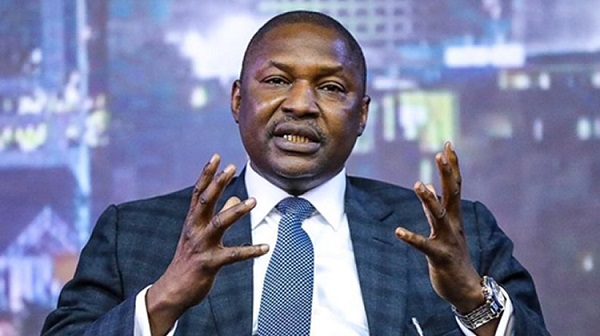
The Economic and Financial Crimes Commission (EFCC) has invited former Attorney-General of the Federation and Minister of Justice, Abubakar Malami, for questioning.
Malami served as Attorney-General and Minister of Justice from 2015 to 2023 under former President Muhammadu Buhari.
Malami announced the development on his Facebook page on Friday, confirming that he had received a formal invitation from the anti-graft agency.
“I would like to inform my family and friends that I have been summoned by the EFCC to provide clarification on certain matters, and as a law-abiding and patriotic citizen, I am determined to honour this invitation without any hesitation,” he wrote.
The former minister reiterated his commitment to the principles of honesty, integrity, and accountability, which he said guided his years in public service.
“I believe in the importance of honesty, integrity, and accountability in governance; these are principles that I have long supported and upheld over the years of my public service,” he added.
Malami also stated that he would keep Nigerians informed of any developments that may arise from the invitation.
News
NDHS: Nigerian regions show huge disparity in spousal earnings
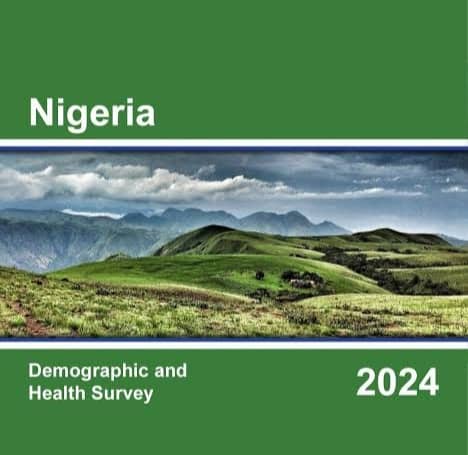
• South South most equal
By Grace Edet
New data from the 2024 Nigeria Demographic and Health Survey (NDHS) has revealed major regional disparities in spousal earnings, showing that most Nigerian wives aged 15–49 earn less than their husbands, despite growing pockets of income equality across the country.
According to figures shared by Statisense on Tuesday, the trend is most pronounced in the North-West, where 941 in 1,000 wives earn less than their husbands, while only 29 in 1,000 earn more. The region also recorded the lowest rate of non-earning husbands, with just 7 in 1,000 women reporting partners with no income.
In contrast, the South South posted the strongest levels of income parity. The region recorded 113 in 1,000 wives earning the same as their husbands, the highest nationwide. It also had the largest share of women earning more than their spouses at 61 in 1,000.
The North East also showed notable shifts. While 30 in 1,000 wives out-earn their husbands, one of the highest shares in the country, the region still reported that 888 in 1,000 women earn less, reflecting wide inequality despite emerging improvements.
The North Central displayed more balanced figures, with 46 in 1,000 women earning more, and 65 in 1,000 earning equally, though 848 in 1,000 wives still fall below their husbands’ income levels.
In the South East, income gaps remain significant but show signs of narrowing. The data shows 57 in 1,000 wives earn more, 82 in 1,000 earn equally, while 775 in 1,000 still earn less than their husbands.
For the South West, 45 in 1,000 wives earn more, and 75 in 1,000 earn the same, but 824 in 1,000 wives still earn below their husbands’ earnings. Only 11 in 1,000 husbands reported having no income.
The NDHS 2024 findings highlight a consistent national pattern: while traditional income structures remain strong, especially in northern regions, the southern zones, particularly the South South, are showing faster shifts toward income equality within households.
Experts say the trend reflects broader economic realities, including rising female participation in formal work, regional differences in literacy levels, and contrasting socio-cultural expectations about household roles.
The full survey continues to shape policy discussions on women’s economic empowerment, labour participation, and regional development priorities.
-

 Art & Life9 years ago
Art & Life9 years agoThese ’90s fashion trends are making a comeback in 2017
-

 Entertainment9 years ago
Entertainment9 years agoThe final 6 ‘Game of Thrones’ episodes might feel like a full season
-

 Business9 years ago
Business9 years agoThe 9 worst mistakes you can ever make at work
-

 Art & Life9 years ago
Art & Life9 years agoAccording to Dior Couture, this taboo fashion accessory is back
-

 Entertainment9 years ago
Entertainment9 years agoThe old and New Edition cast comes together to perform
-

 Sports9 years ago
Sports9 years agoPhillies’ Aaron Altherr makes mind-boggling barehanded play
-

 Entertainment9 years ago
Entertainment9 years agoMod turns ‘Counter-Strike’ into a ‘Tekken’ clone with fighting chickens
-

 Entertainment9 years ago
Entertainment9 years agoDisney’s live-action Aladdin finally finds its stars


